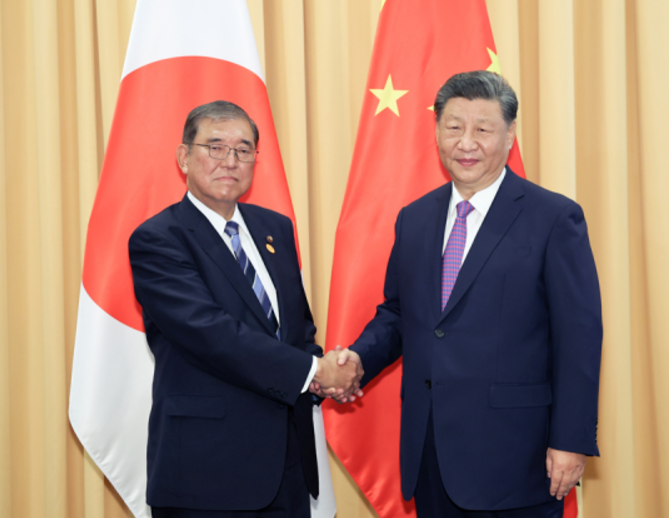Despite tensions, China grants visa-free entry to Japanese visitors
After pressure from investors, Japan becomes one of 38 countries with visa-free entry to China. This follows a meeting in Lima (Peru) between Chinese President Xi Jinping and Japanese Prime Minister Shigeru Ishiba. In the background, historical animosity lingers, as evinced in the latest match between the two countries’ football teams a few days ago in Xiamen.
Beijing (AsiaNews/Agencies) – China has added Japan to its list of countries with visa-free entry, enabling Japanese nationals to visit the country for up to 30 days without a permit.
In the announcement, Chinese Foreign Ministry spokesperson Lin Jian explained that the measure will apply from 30 November this year until the end of next year.
Japan is one of nine new countries exempted from the visa requirement, bringing the total to 38. The others are Bulgaria, Romania, Croatia, Montenegro, North Macedonia, Malta, Estonia, and Latvia.
China inaugurated this policy last year, starting with some of the larger European countries like France, Germany, Italy, the Netherlands, and Spain, to boost tourism and business.
Between 2003 and 2020, Japanese passport holders could enter the country without a visa for up to 15 days. The measure was suspended as a result of the COVID-19 outbreak.
Chinese nationals who wish to enter Japan must apply for a visa regardless of the duration or purpose of their stay.
Beijing's decision comes after hundreds of Japanese investors earlier this year urged China to scrap visa rules in order to expand business and investment, and follows a meeting between Chinese President Xi Jinping and Japanese Prime Minister Shigeru Ishiba on the sidelines of the APEC summit in Peru last week.
Japan is heavily dependent on Chinese supply chains and is one of the country's main import and export partners.
In the background, however, the historic antagonism between the two countries remains, compounded by a rise in nationalist rhetoric on both sides in recent years.
This was especially evident in China’s strong-worded response to Japan’s decision to release into the sea waste water from the Fukushima nuclear power plant, which led to the subsequent ban on Japanese fish imports.
In September, Beijing agreed to gradually lift the measure, following talks and clarifications with the Japanese government.
Nevertheless, Chinese social media are still filled with anti-Japanese rhetoric, which has had serious consequences, most notably the shooting death of a Japanese child outside a school in Shenzhen a few weeks ago.
Just two days ago, on the occasion of the World Cup qualifying match between the two national football teams in Xiamen, a large section of the stadium loudly booed the Japanese national anthem.
Japan should “face history squarely, be forward-looking, and properly handle historical, Taiwan-related and other major issues of principle,” Xi said in Lima.
Ishiba replied that Japan's position on Taiwan remains unchanged, based on the Japan-China joint declaration signed in 1972, adding that the two countries will continue to engage in dialogue and turn into action the agreement reached over Fukushima.







.png)










